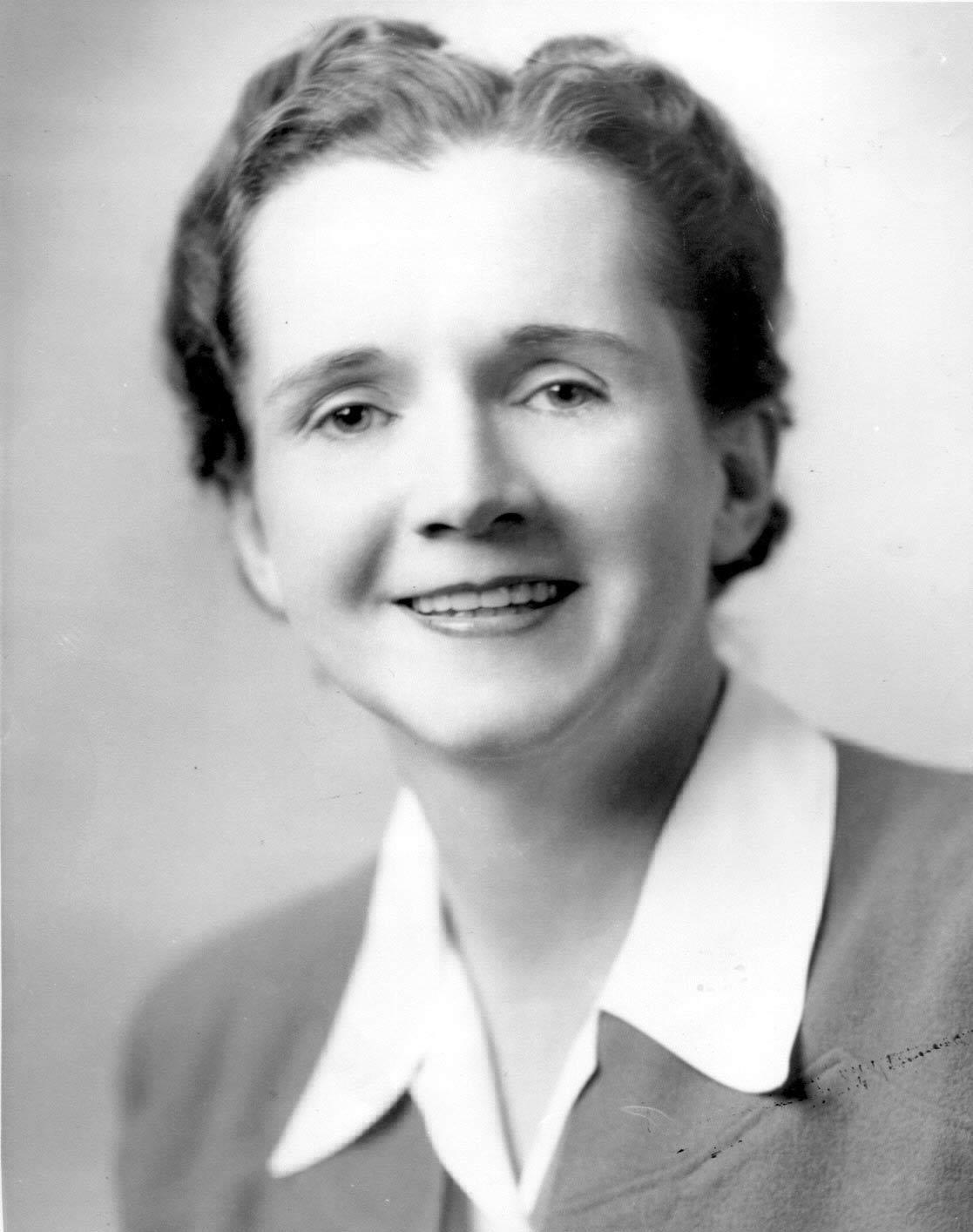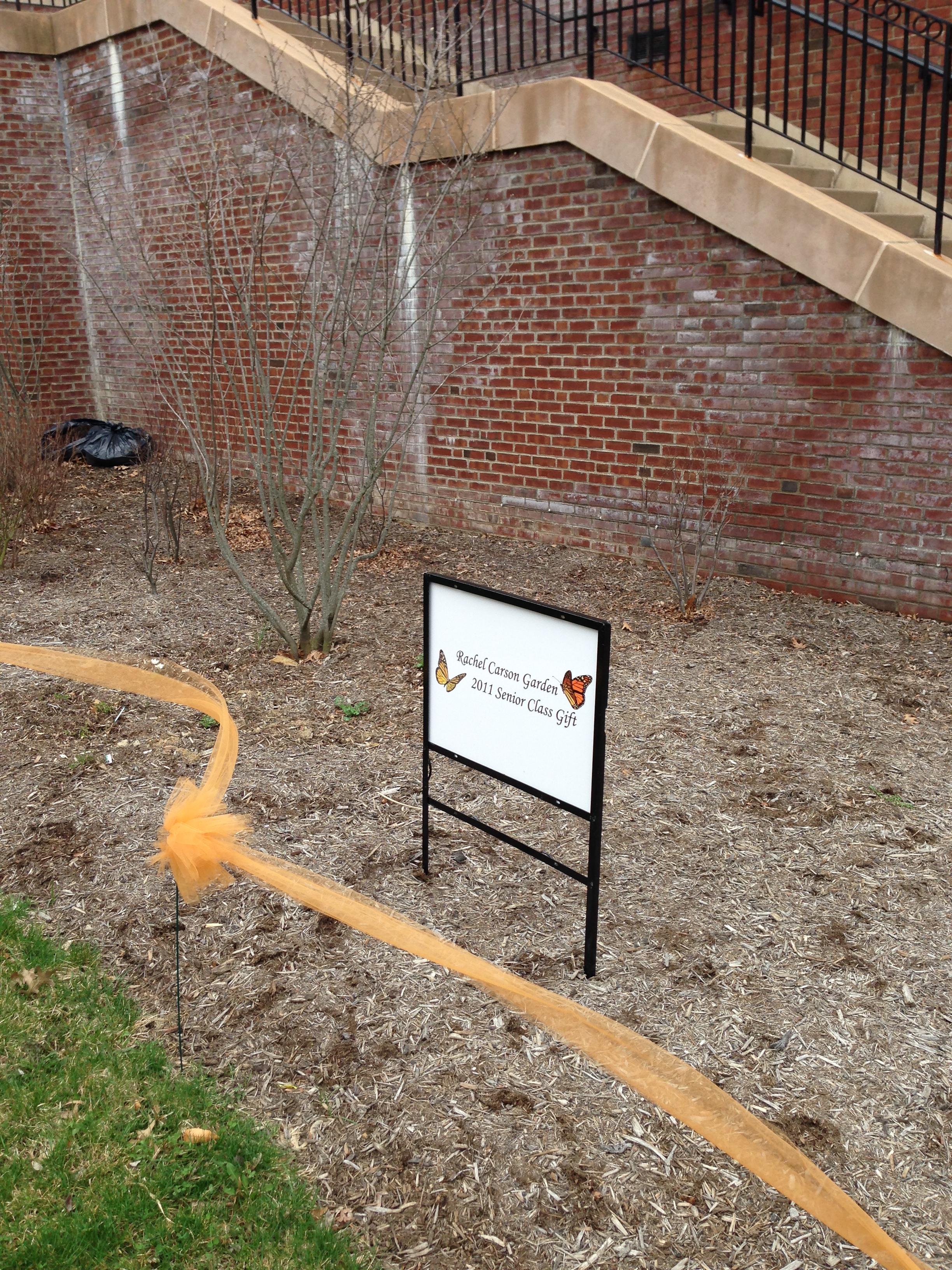On Saturday, February 21, students from Chatham University and University of Pittsburgh, as well as members of the community at large, gathered at Chatham’s Eddy Theatre for a screening of the documentary, “The Power of One Voice: A 50-Year Perspective on the Life of Rachel Carson,” hosted by the Falk School of Sustainability.
The brainchild of executive producer and former Director of the Rachel Carson Institute at Chatham University Patricia DeMarco and environmental filmmaker Mark Dixon, the film was a reflection on the fiftieth anniversary celebration of Carson’s book “Silent Spring” that was held at Chatham University and The National Aviary in April of 2012 and featured interviews from academics and Rachel Carson scholars who attended the celebration.
“Rachel Carson is probably this University’s most famous alumna,” Peter Walker, Dean of the Falk School of Sustainability, said in his introduction to the event.
He then took the time to highlight various political activists in the audience, including Sharon Walsh, the editor of the environmental newspaper “Public Source,” who spoke briefly about her organization’s cause, and encouraged people to sign up for their newsletter.
Welker then introduced Dixon, who spoke about the process of making the film.
“Environmental filmmaking is morally easy, but financially not that easy,” he began, thanking everyone in attendance for paying the $15 admittance fee (except for students, whose admission was free), and reminding people that the DVD was for sale in the lobby.
He then spoke about environmentalism and how it involves changing people’s mindsets and convincing them to change their lifestyles, which is not an easy thing to do.
“It’s like asking a civilization to all get into a 747 jet and swap out the engines after taking off,” he said, before continuing, “but we have to get in touch with our moral lens…[Carson’s] work is not done yet.”
Dixon then introduced the film itself, which consisted of an hour’s worth of interviews with DeMarco, professor Louis Guillette, author Scott Weidensaul, U.S. Fish and Wildlife historian Mark Madison, journalist Don Hopey, Rachel Carson expert Linda Lear, and Carson’s adopted son Roger Christie.
The film focused a great deal on the fact that Carson was a trailblazer and that her opinions were unpopular in her time.
It also focused on the fact that Carson literally gave her life to her work, choosing to commit herself to spreading her message even after being diagnosed with breast cancer.
This is particularly important when one considers the point that Madison made towards the end of the film when he said, “Everything that has happened in the past 50 years has proved her right.”
After the film there was a panel discussion about the film and environmental advocacy in general with DeMarco, Crystal Fortwangler–professor in the Falk School of Sustainability–and Lou Martin–professor in the department of History, Political Science, and International Studies.
The panel discussion began with a question about what Carson’s message means for people today, and Martin took the lead, discussing his experience with non-violent direct action advocacy, which is, in his words, “standing in the way of business as usual.”
His main point was that, “we as a society need to get better at critical thinking if we are going to address some of these problem.”
“I do hope that there will be more ‘Silent Springs’ published by this generation,” he continued. “The next ‘Silent Spring’ might not be a book. It might be a film, a piece of art, a song, a poem,” Martin said, at which point Walker jumped in to say, “Or a social media campaign.”
Fortwangler felt similarly, focusing her response on the merits of film in the fight for the environment, and the importance of getting people interested and engaged in the topic.
DeMarco’s answer drove the point home when she said, “We’ve dealt with the symptoms, its time to deal with the causes…we need to compel others, and take action.”
“We have to change the way we value our environments,” she continued, “and we have to do it quickly.”
Afterwards Walker opened the floor to question from the audience, and people asked about a wide range of topics including fracking, the merits of documentaries versus feature films, and the difficulties of eliminating the mindset that, “saving the environment kills jobs.”
“It’s difficult to get people to move when they can’t see what they’re moving towards,” DeMarco said, but she made it clear that this is what must be done to protect the environment for which Carson fought so hard.

